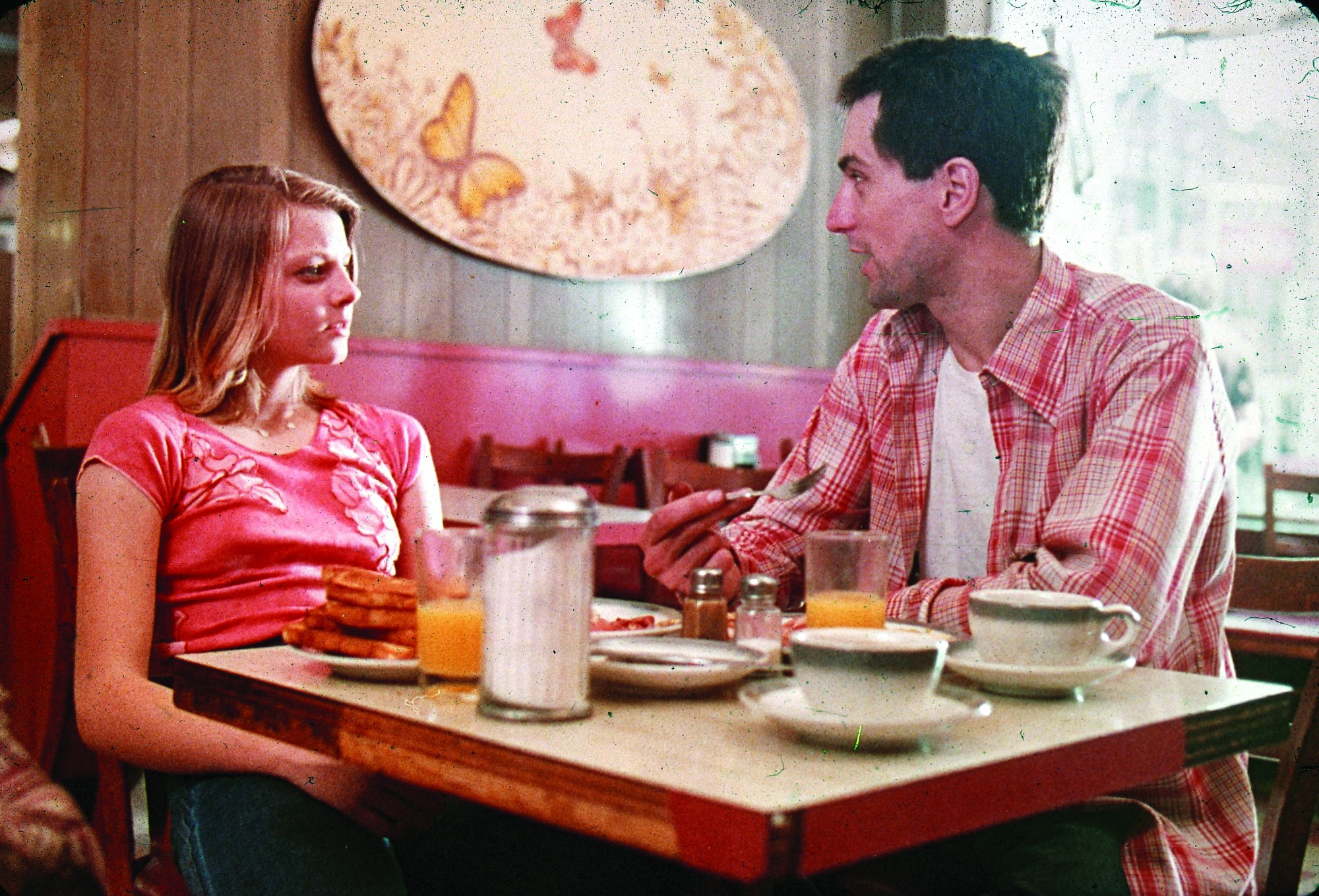Nostalgic America
The 15 Movies Every Baby Boomer Grew Up Loving
By Bruce Berns · November 19, 2024
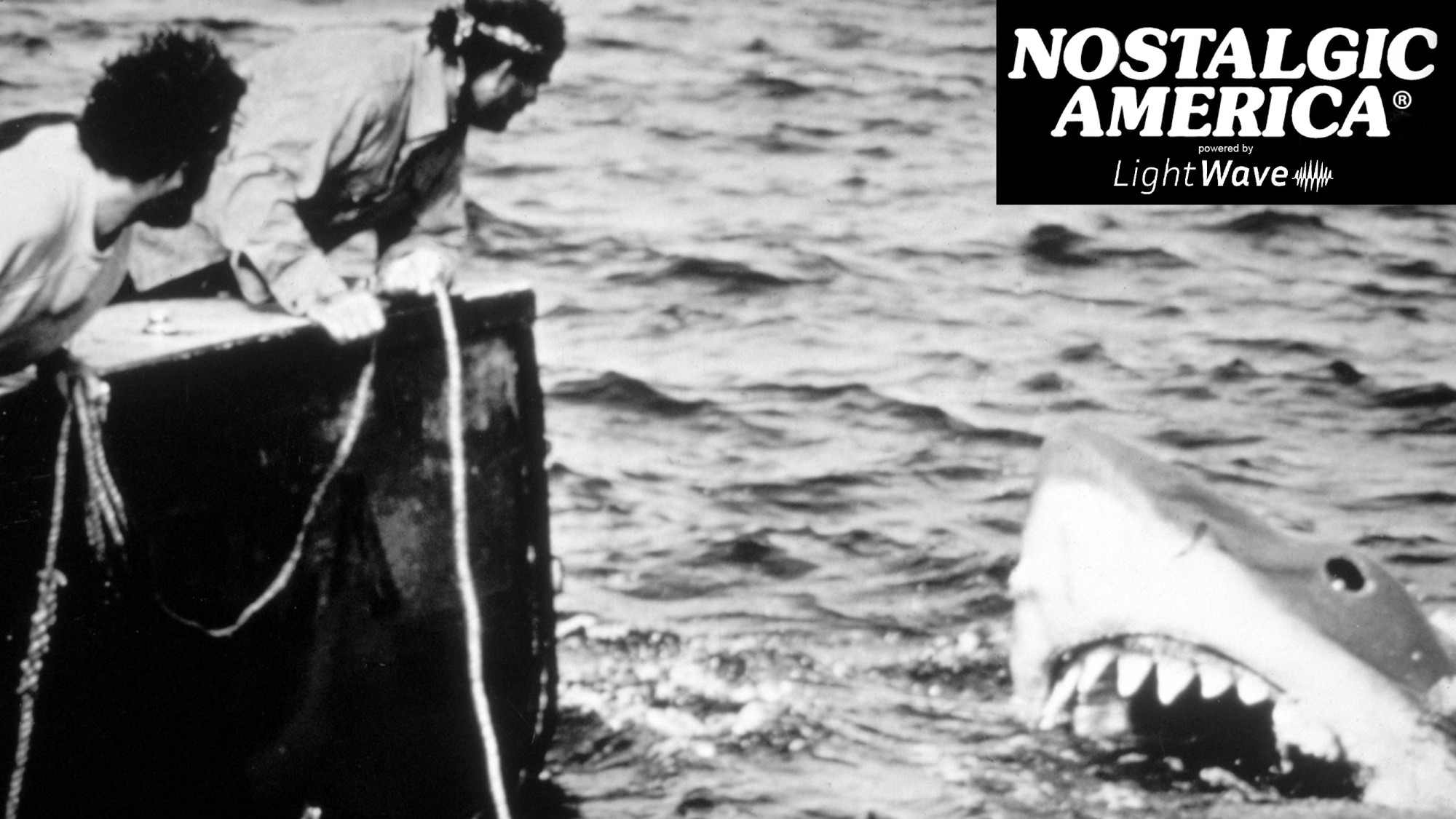
This transformative era gave birth to groundbreaking works that challenged conventions, introduced innovative special effects, and tackled complex social issues head-on. From George Lucas's galaxy-spanning epic Star Wars to Francis Ford Coppola's gritty crime drama The Godfather, these fifteen films represent the pinnacle of Hollywood's golden age.
Each movie captures the spirit of its time while offering timeless themes that continue to resonate with audiences today, making them essential viewing for Baby Boomers eager to revisit the classics that shaped their generation. Getty Images / Nostalgic America, Inc.
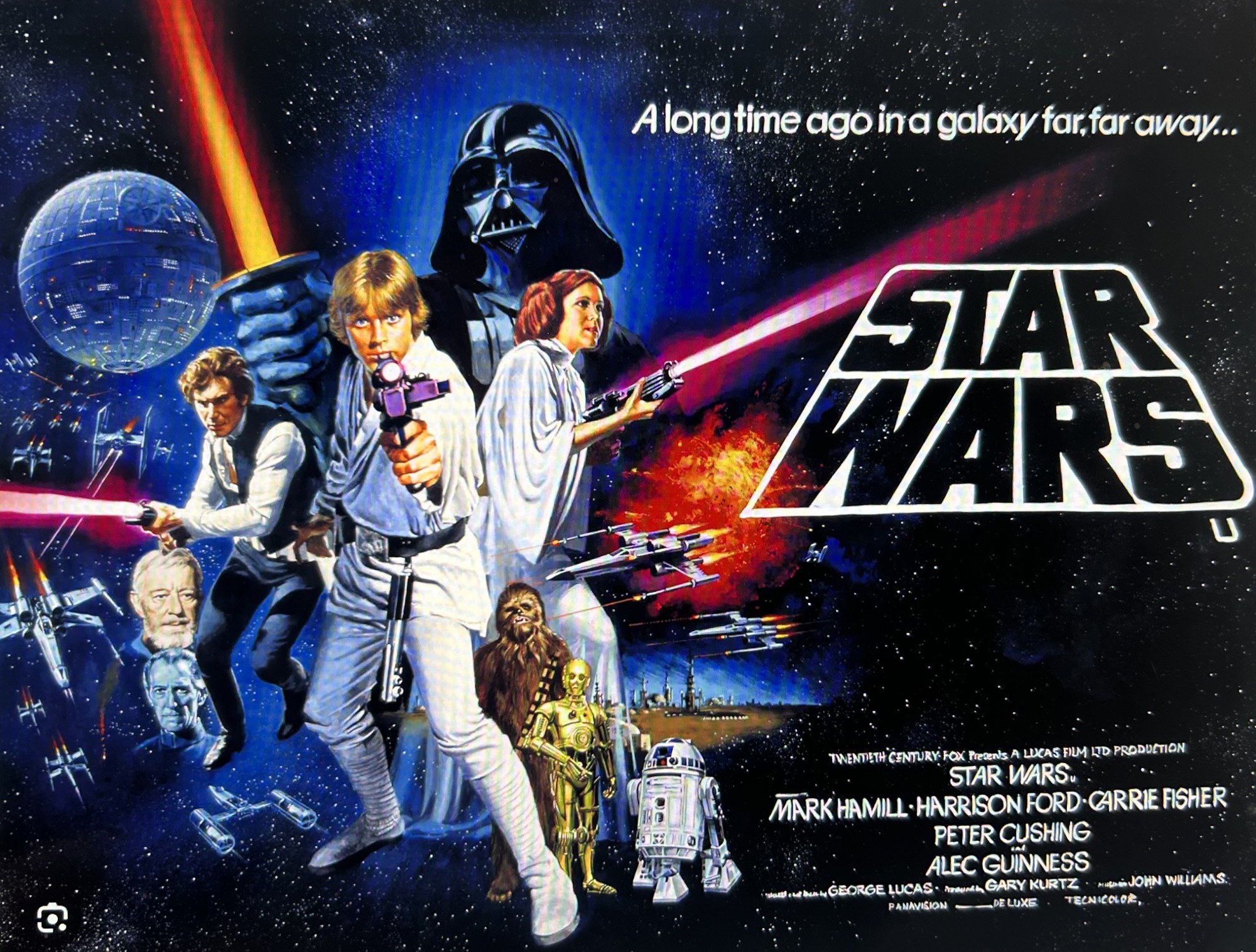
Star Wars (1977)
Star Wars, created by George Lucas, launched a groundbreaking space opera saga that captivated audiences and changed the landscape of film. Set in a galaxy far, far away, the story follows Luke Skywalker (Mark Hamill) as he joins Princess Leia (Carrie Fisher), smuggler Han Solo (Harrison Ford), and mentor Obi-Wan Kenobi (Alec Guinness) to battle the evil Galactic Empire led by Darth Vader. Getty Images / Nostalgic America, Inc.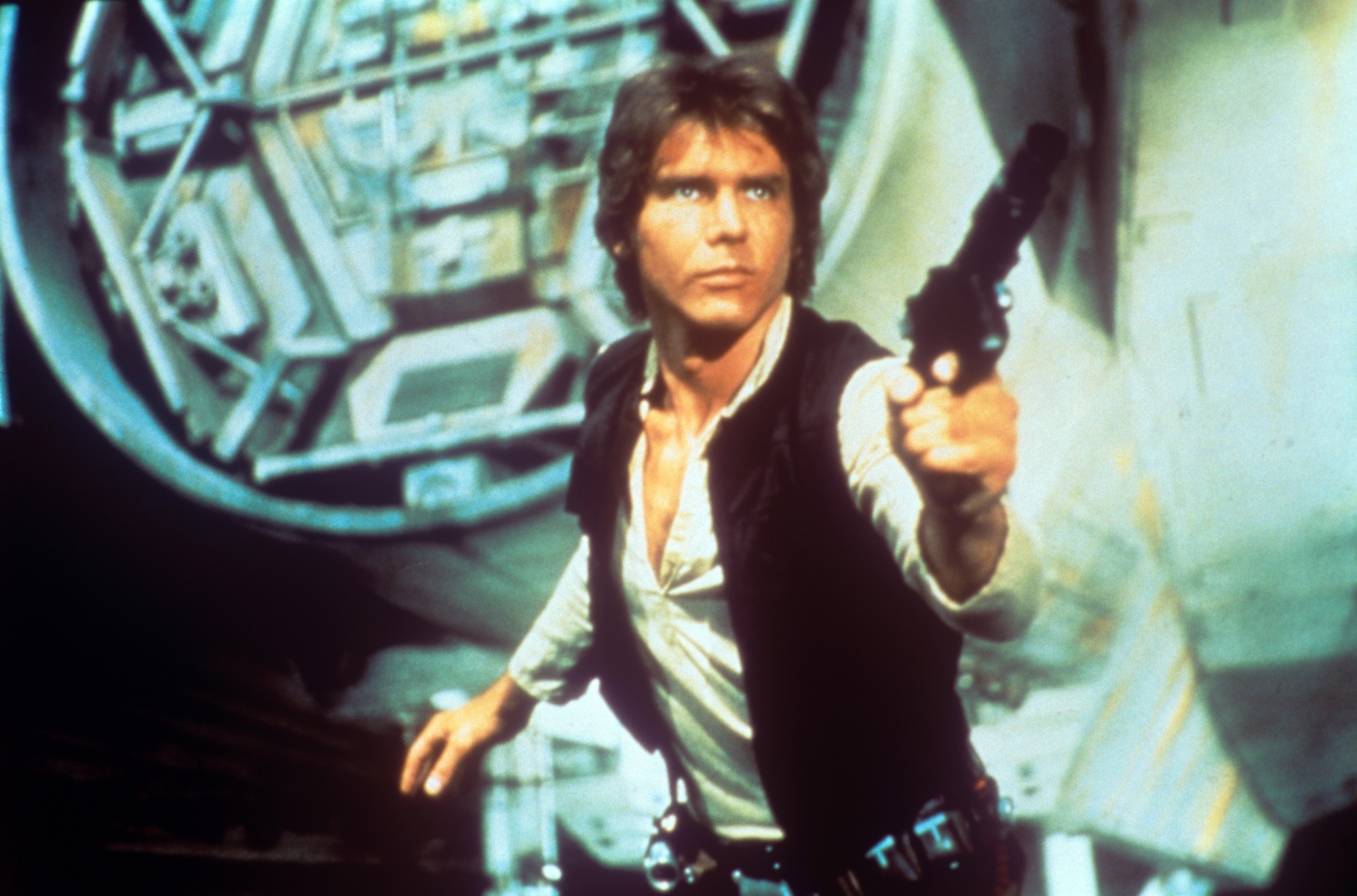
Star Wars
The film’s innovative special effects, epic storytelling, and John Williams’ iconic score redefined the science fiction genre. Star Wars became a cultural phenomenon ...establishing a devoted global fanbase and spawning a massive franchise that includes sequels, prequels, spin-offs, and an expanded universe. Star Wars earned critical and commercial success, winning multiple Academy Awards and influencing countless filmmakers with its pioneering visual effects, imaginative world-building, and timeless themes of heroism, hope, and the battle between good and evil. The movie’s success cemented George Lucas’s legacy and laid the foundation for blockbuster filmmaking, making Star Wars an indelible part of pop culture. Getty Images / Nostalgic America, Inc.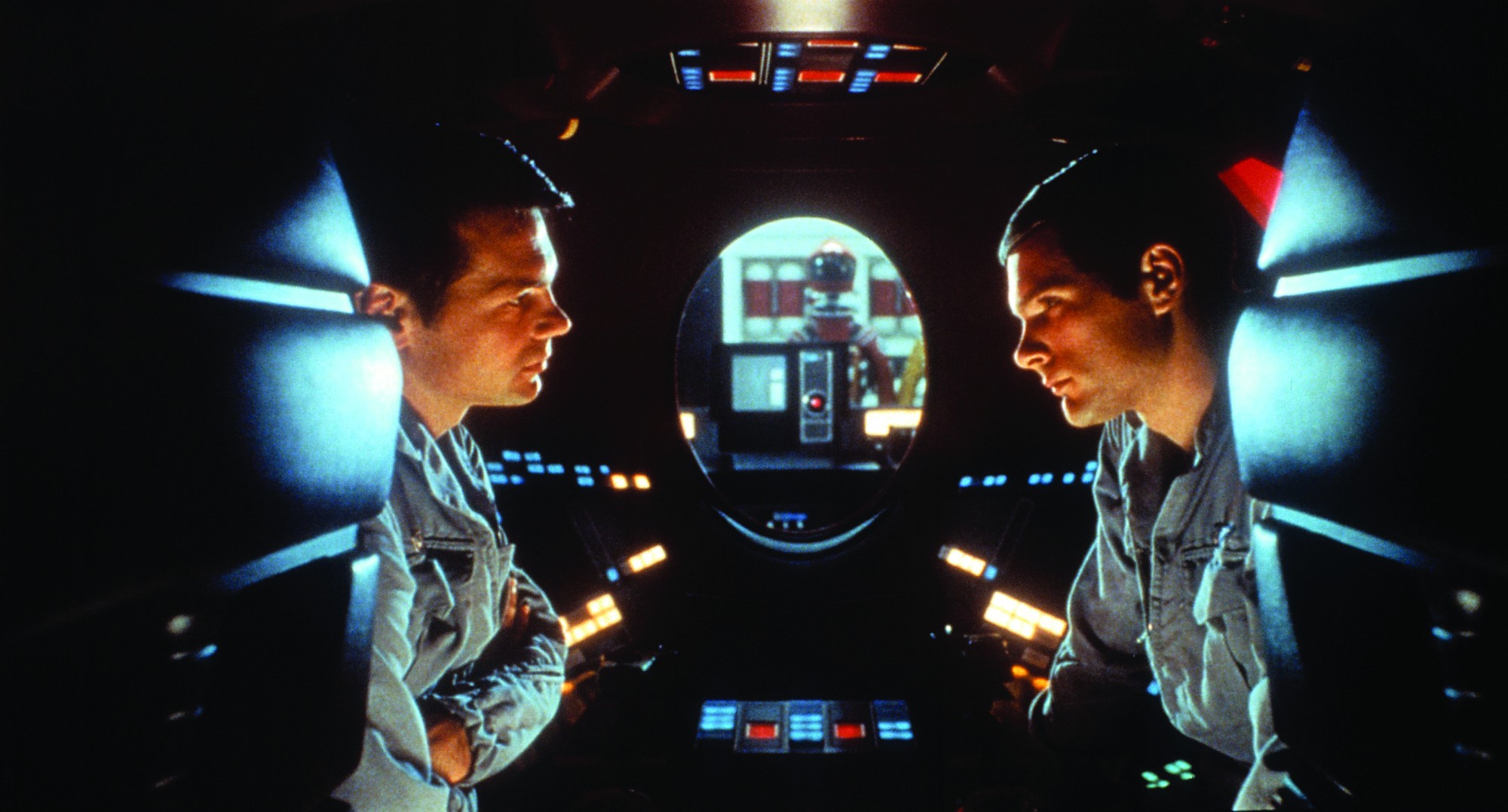
2001: A Space Odyssey (1968)
Directed by Stanley Kubrick, 2001: A Space Odyssey is a landmark in science fiction cinema, renowned for its groundbreaking special effects, philosophical themes, and enigmatic storytelling. The film follows the evolution of humanity, from the discovery of a mysterious monolith influencing human development to a space mission led by Dr. Dave Bowman (Keir Dullea) and the sentient computer HAL 9000. Getty Images / Nostalgic America, Inc.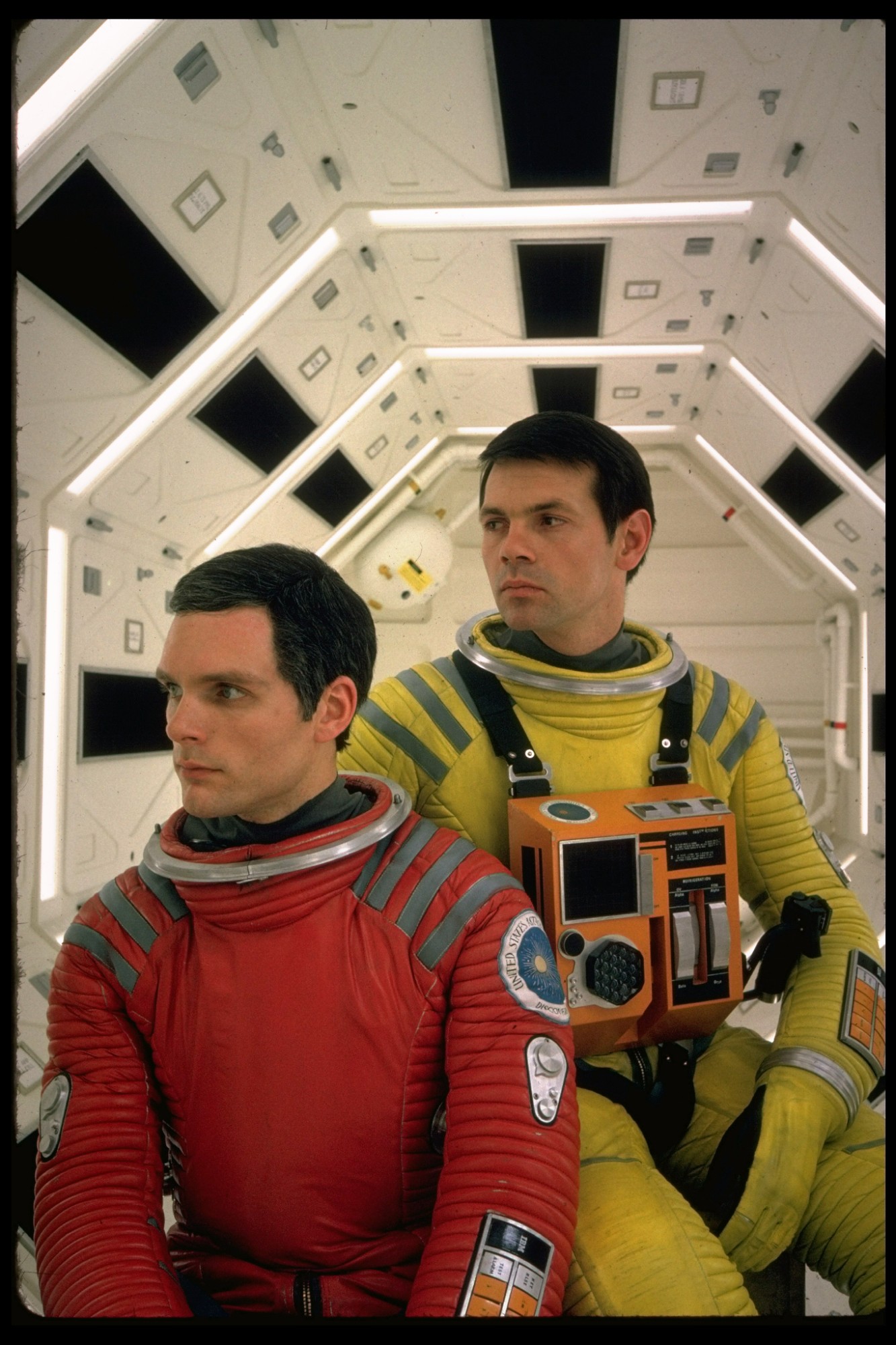
Stanley Kubrick’s vision
HAL’s malfunction and the film’s climactic “Stargate” sequence culminate in a transcendental transformation. Kubrick’s vision, coupled with Arthur C. Clarke’s collaboration on the screenplay, resulted in a visually stunning meditation on technology, existence, and the cosmos. Getty Images / Nostalgic America, Inc.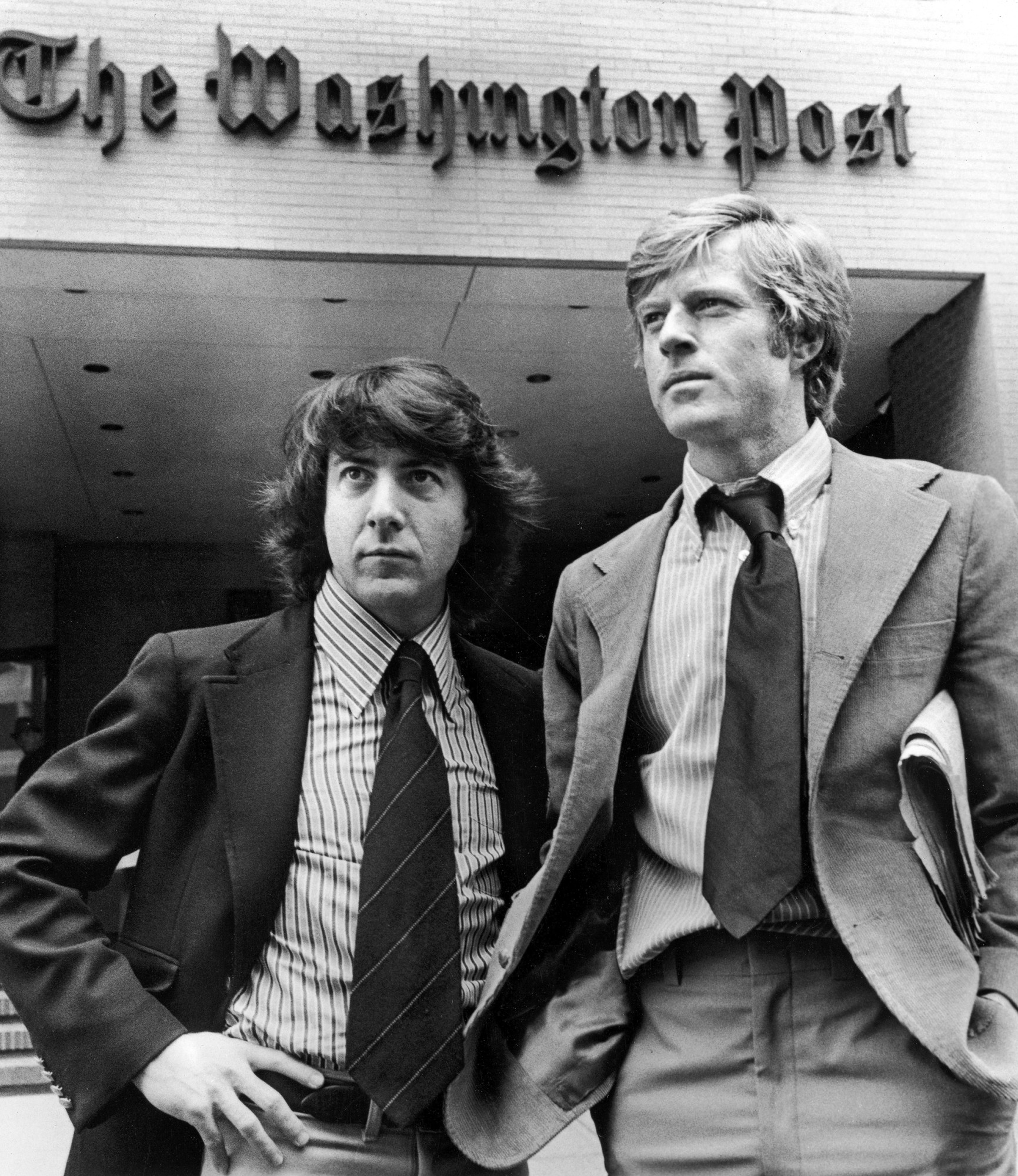
All the President’s Men (1976)
All the President’s Men is a political thriller based on the true story of journalists Bob Woodward (Robert Redford) and Carl Bernstein (Dustin Hoffman) from The Washington Post who uncovered the Watergate scandal. Directed by Alan J. Pakula, the film meticulously follows the investigative reporting that exposed corruption at the highest level of the U.S. government, leading to President Nixon’s resignation. Praised for its tense, realistic portrayal of journalism and meticulous attention to detail, the movie captures the dogged pursuit of truth and the challenges of holding power accountable. It won four Oscars, solidifying its status as a classic. Getty Images / Nostalgic America, Inc.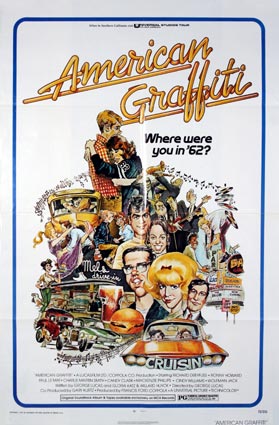
American Graffiti (1973)
Directed by George Lucas, American Graffiti is a nostalgic coming-of-age film set in 1962, chronicling a group of teenagers on their last night of summer before adulthood. With its soundtrack of classic rock ‘n’ roll hits, the film captures the atmosphere of youthful freedom and rebellion. Getty Images / Nostalgic America, Inc.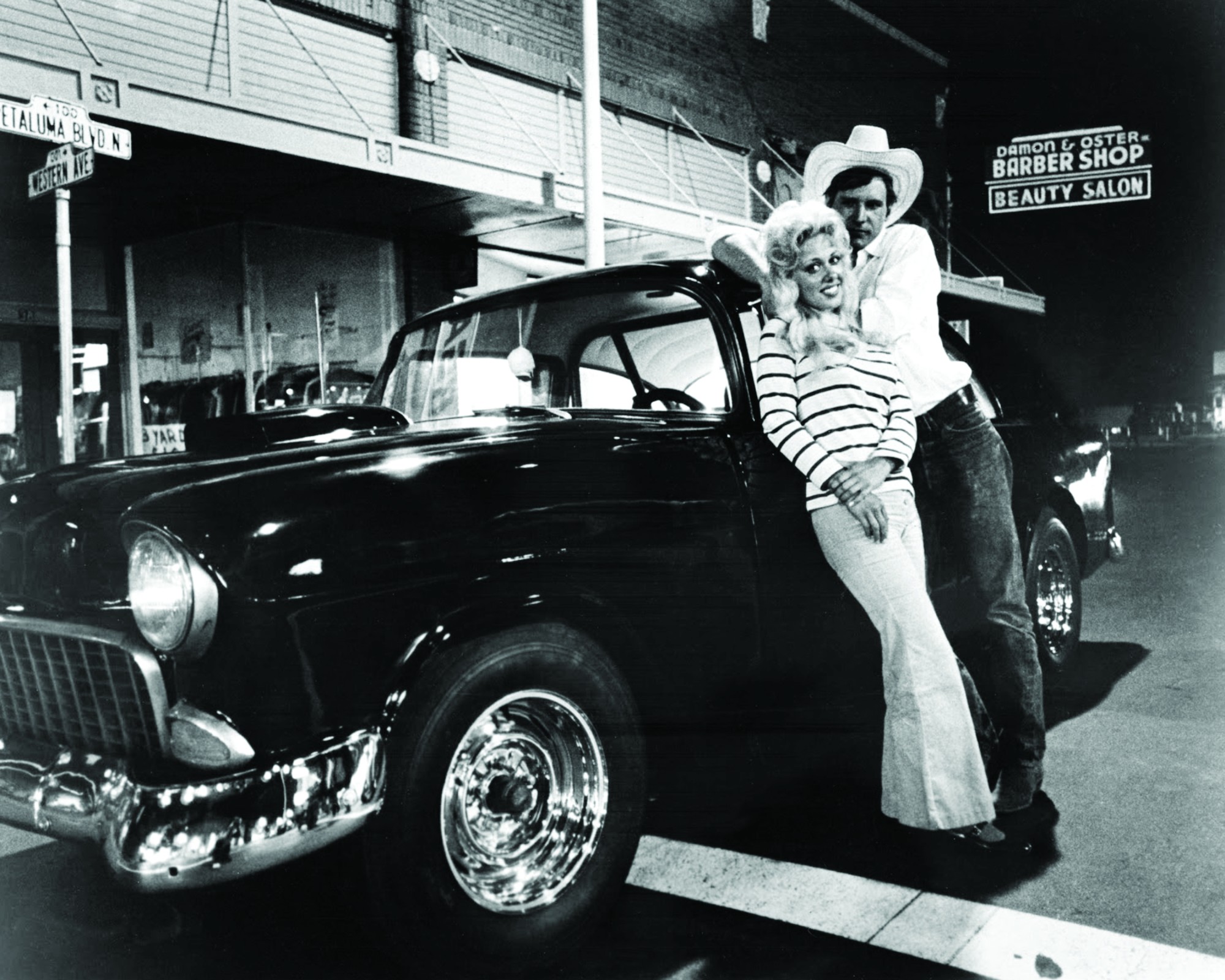
Starring Richard Dreyfuss, Ron Howard, and Harrison Ford
Starring Richard Dreyfuss, Ron Howard, and Harrison Ford, the story explores themes of friendship, love, and the uncertainty of the future. The film’s portrayal of 1960s car culture and high school life resonated with audiences, earning it critical acclaim and helping to launch the careers of its cast and director. Getty Images / Nostalgic America, Inc.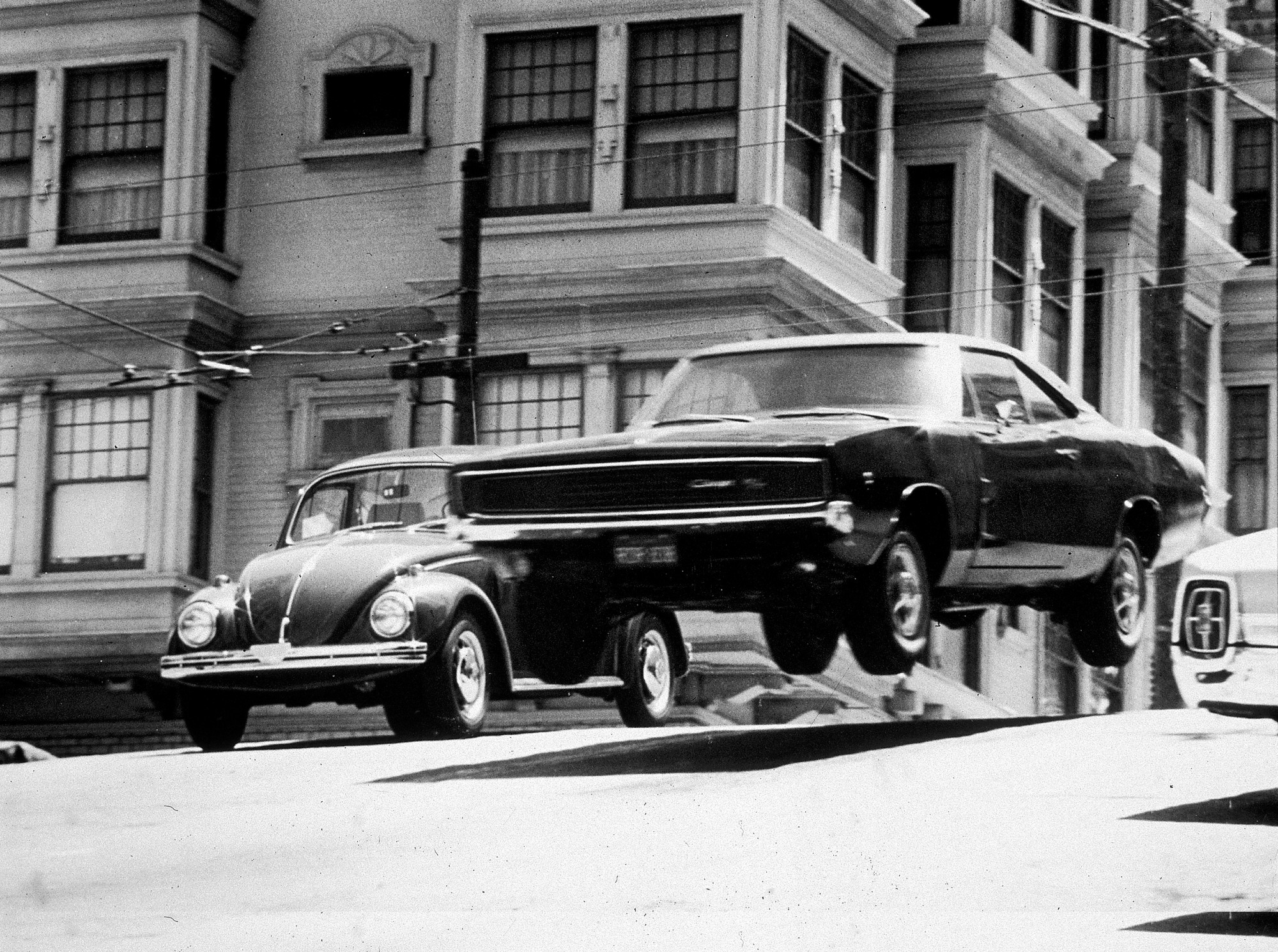
Bullitt (1968)
Bullitt, directed by Peter Yates, is an iconic action-thriller featuring Steve McQueen as Frank Bullitt, a San Francisco cop tasked with protecting a key witness. When the witness is assassinated, Bullitt navigates corruption and conspiracy to uncover the truth. The film is best known for its groundbreaking car chase sequence through the streets of San Francisco, showcasing McQueen’s cool, understated charisma and skill behind the wheel. Its realistic action, jazz-infused score by Lalo Schifrin, and gritty atmosphere set new standards for crime dramas, influencing generations of filmmakers and solidifying McQueen’s legacy as the “King of Cool.” Getty Images / Nostalgic America, Inc.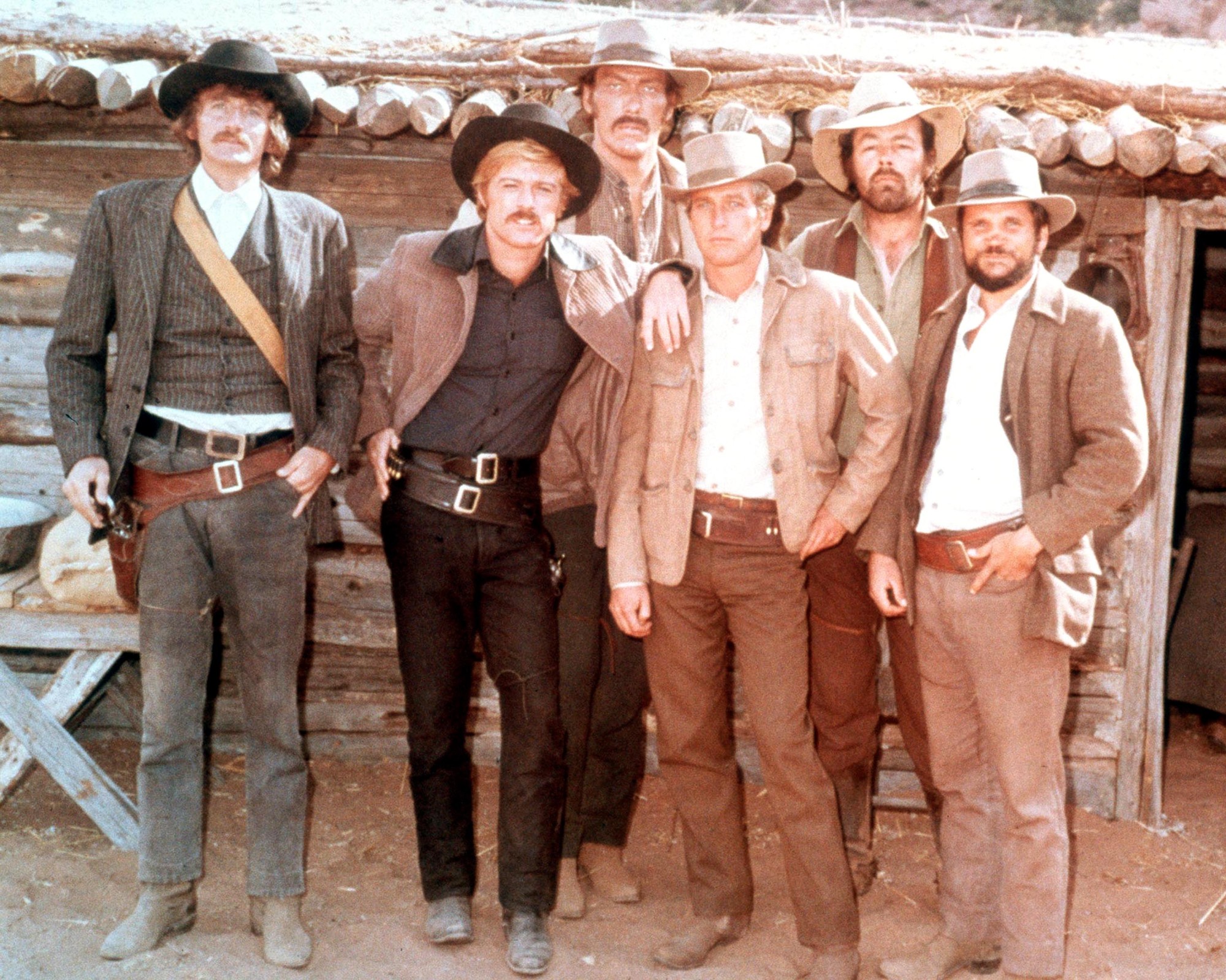
Butch Cassidy and the Sundance Kid (1969)
Directed by George Roy Hill, Butch Cassidy and the Sundance Kid is a Western starring Paul Newman and Robert Redford as the titular outlaws. Known for their charm and camaraderie, Butch and Sundance rob trains and banks but face relentless pursuit by a determined posse. The film’s witty dialogue, memorable one-liners, and chemistry between Newman and Redford made it a standout of the genre. The story’s blend of humor, adventure, and tragedy culminates in a legendary final shootout. The film’s Oscar-winning score, including the hit “Raindrops Keep Fallin’ on My Head,” added to its lasting appeal. Getty Images / Nostalgic America, Inc.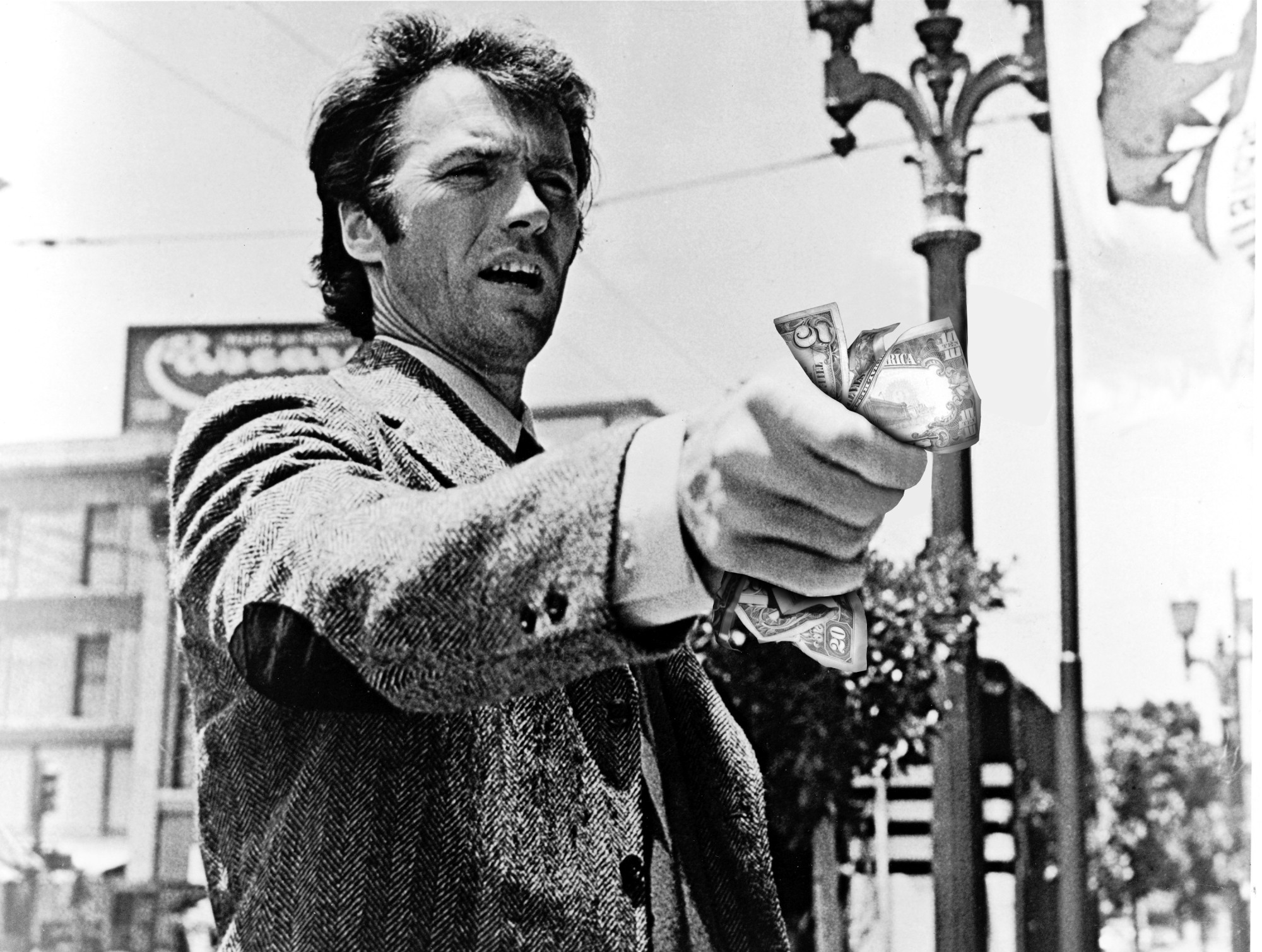
Dirty Harry (1971)
Dirty Harry, directed by Don Siegel, introduced Clint Eastwood as Inspector Harry Callahan, a tough, no-nonsense San Francisco cop who stops at nothing to catch the psychopathic killer Scorpio. Known for its moral ambiguity and gritty depiction of urban crime, the film raised questions about justice and police ethics. Eastwood’s portrayal of Callahan, with his iconic line, “Do you feel lucky, punk?” cemented him as an action movie legend. Getty Images / Nostalgic America, Inc.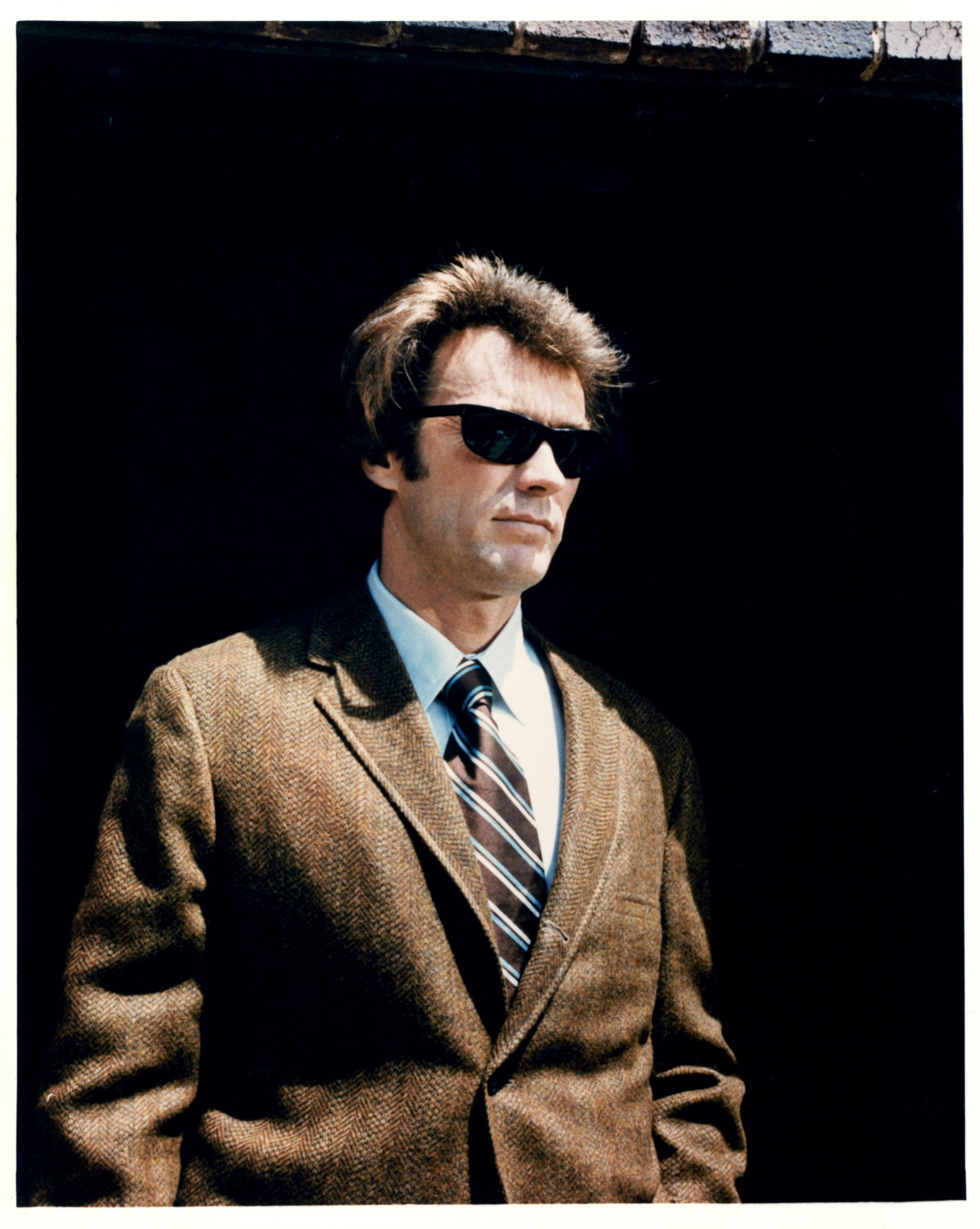
Starring Clint Eastwood
The film’s stark realism and intense action sequences set a benchmark for the police thriller genre and spawned a series of sequels, defining Eastwood’s tough-guy image. Getty Images / Nostalgic America, Inc.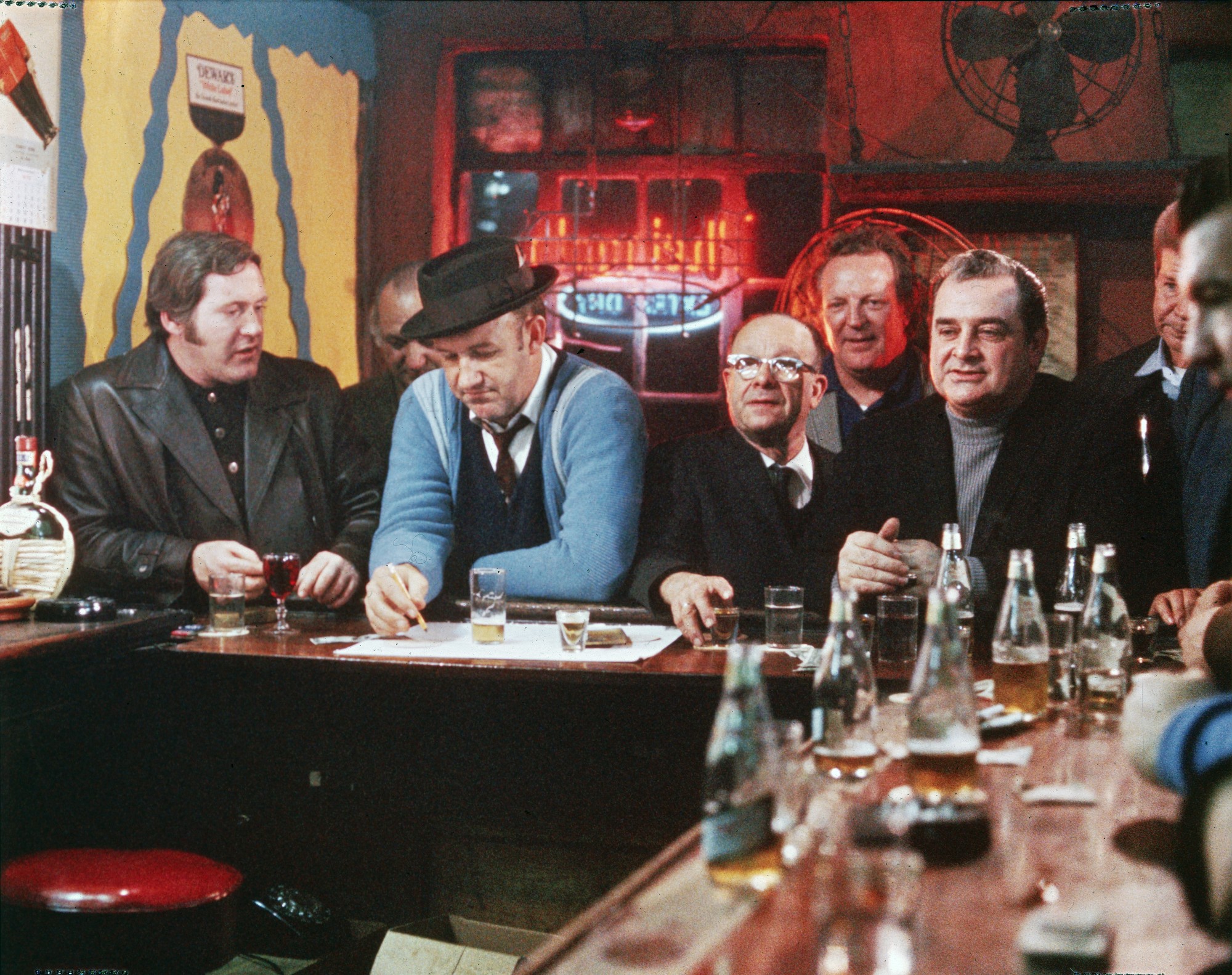
The French Connection (1971)
Directed by William Friedkin, The French Connection is a gritty crime thriller based on true events, following New York City detectives “Popeye” Doyle (Gene Hackman) and Buddy Russo (Roy Scheider) as they pursue a French heroin smuggling ring. Hackman’s portrayal of the relentless and flawed Doyle earned him an Oscar for Best Actor, and the film won five Academy Awards, including Best Picture. Its standout feature is the intense car chase scene through the streets of New York, showcasing Friedkin’s groundbreaking direction and fast-paced editing. The film’s raw energy and realism influenced countless crime dramas that followed. Getty Images / Nostalgic America, Inc.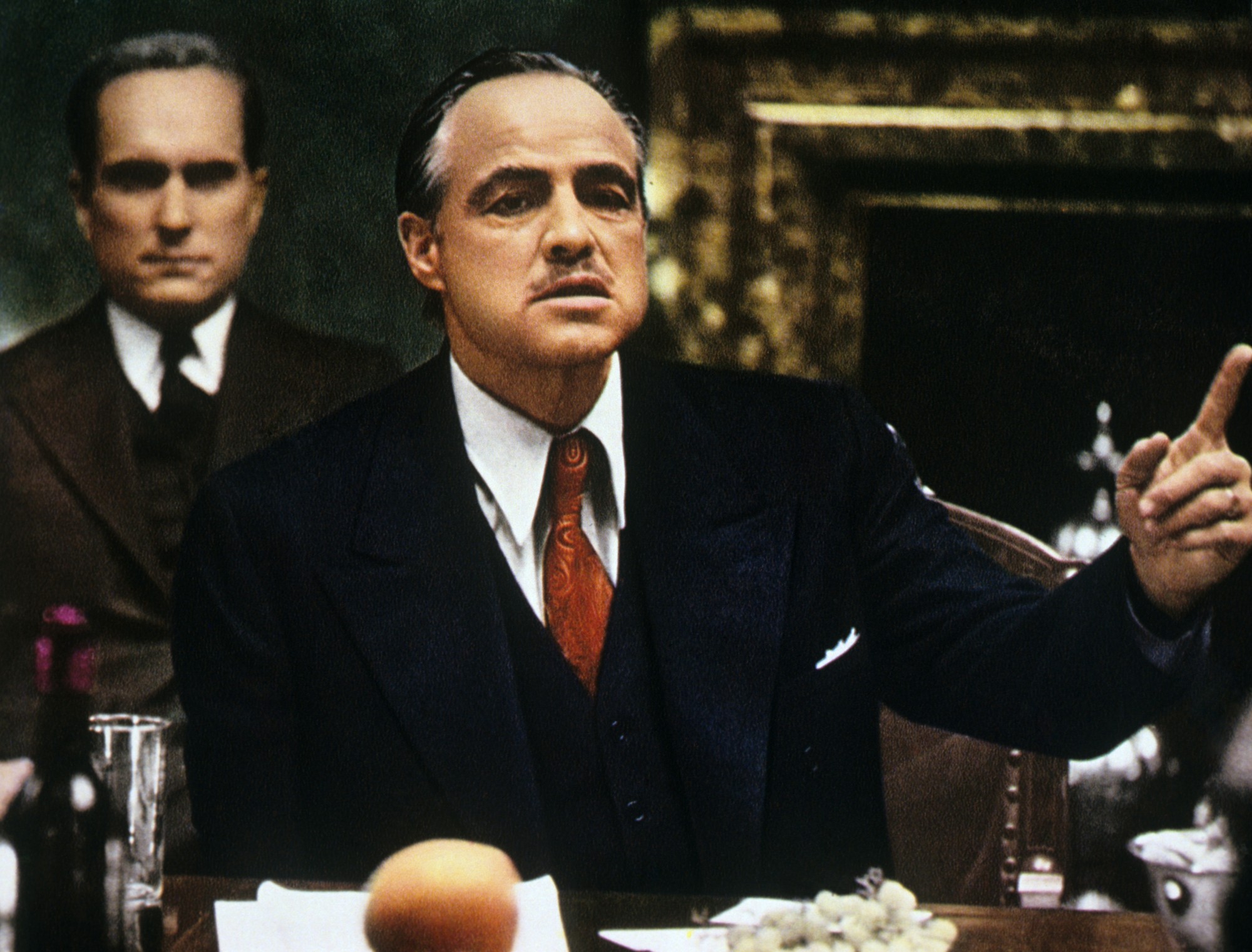
The Godfather (1972)
Directed by Francis Ford Coppola, The Godfather is a masterpiece that reshaped the gangster genre. Starring Marlon Brando as Vito Corleone and Al Pacino as Michael Corleone, the film follows the powerful Italian-American crime family’s struggle for control and survival. The story spans loyalty, power, and betrayal, depicting Michael’s transformation from reluctant outsider to ruthless leader. Brando’s performance, Coppola’s direction, and the memorable score by Nino Rota made The Godfather an instant classic. Winning three Oscars, including Best Picture, the film is lauded for its rich storytelling, complex characters, and profound cultural impact. Getty Images / Nostalgic America, Inc.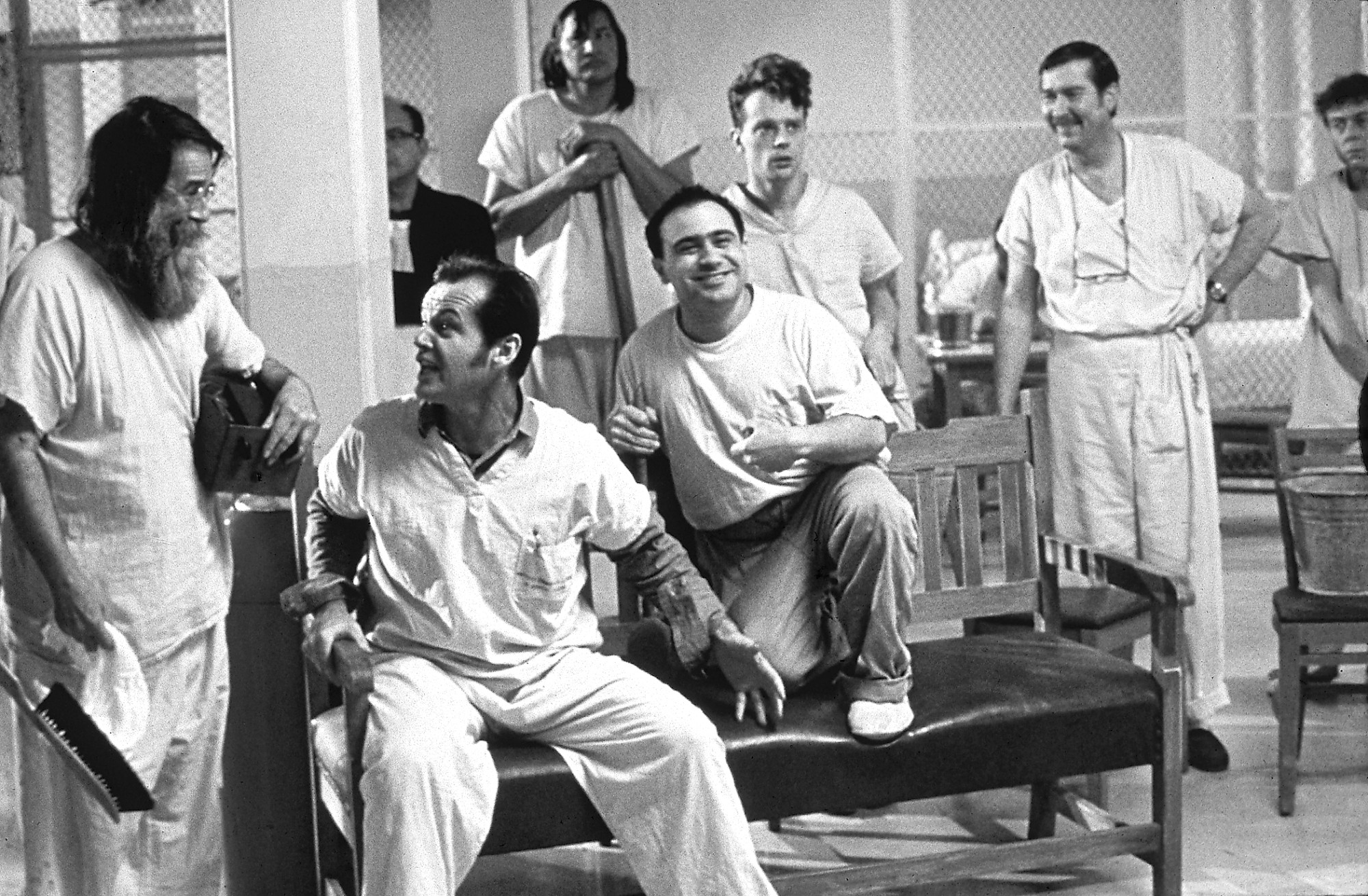
One Flew Over the Cuckoo’s Nest (1975)
Directed by Miloš Forman and based on Ken Kesey’s novel, One Flew Over the Cuckoo’s Nest is a powerful drama set in a mental institution. Jack Nicholson stars as Randle McMurphy, a rebellious convict feigning insanity to avoid prison labor, who clashes with the authoritarian Nurse Ratched (Louise Fletcher). Getty Images / Nostalgic America, Inc.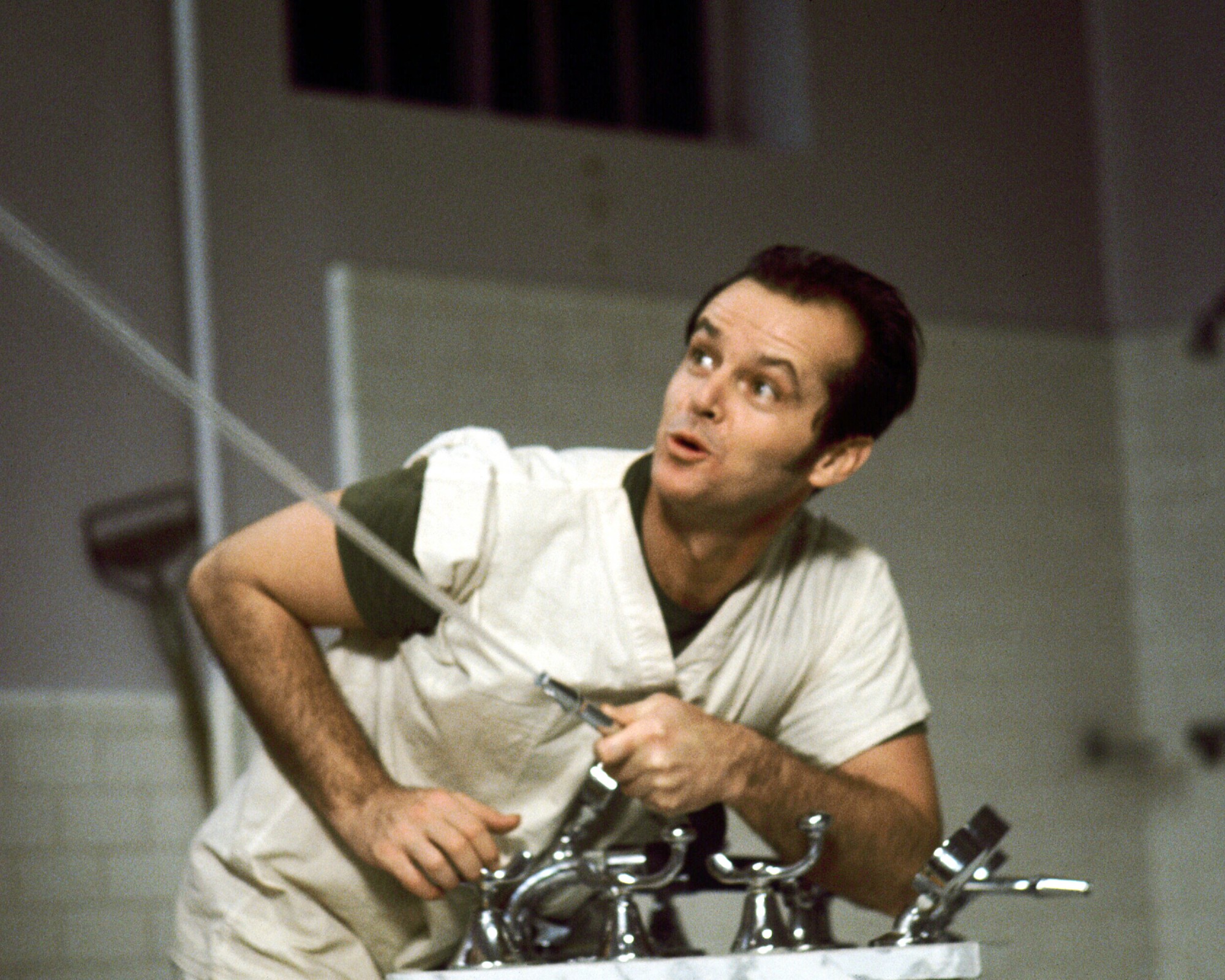
Starring Jack Nicholson
The film explores themes of freedom, individuality, and the human spirit. Nicholson’s performance, which earned him an Oscar, is celebrated for its intensity and depth. The film won five major Academy Awards, including Best Picture, and remains an iconic critique of institutional control and conformity. Getty Images / Nostalgic America, Inc.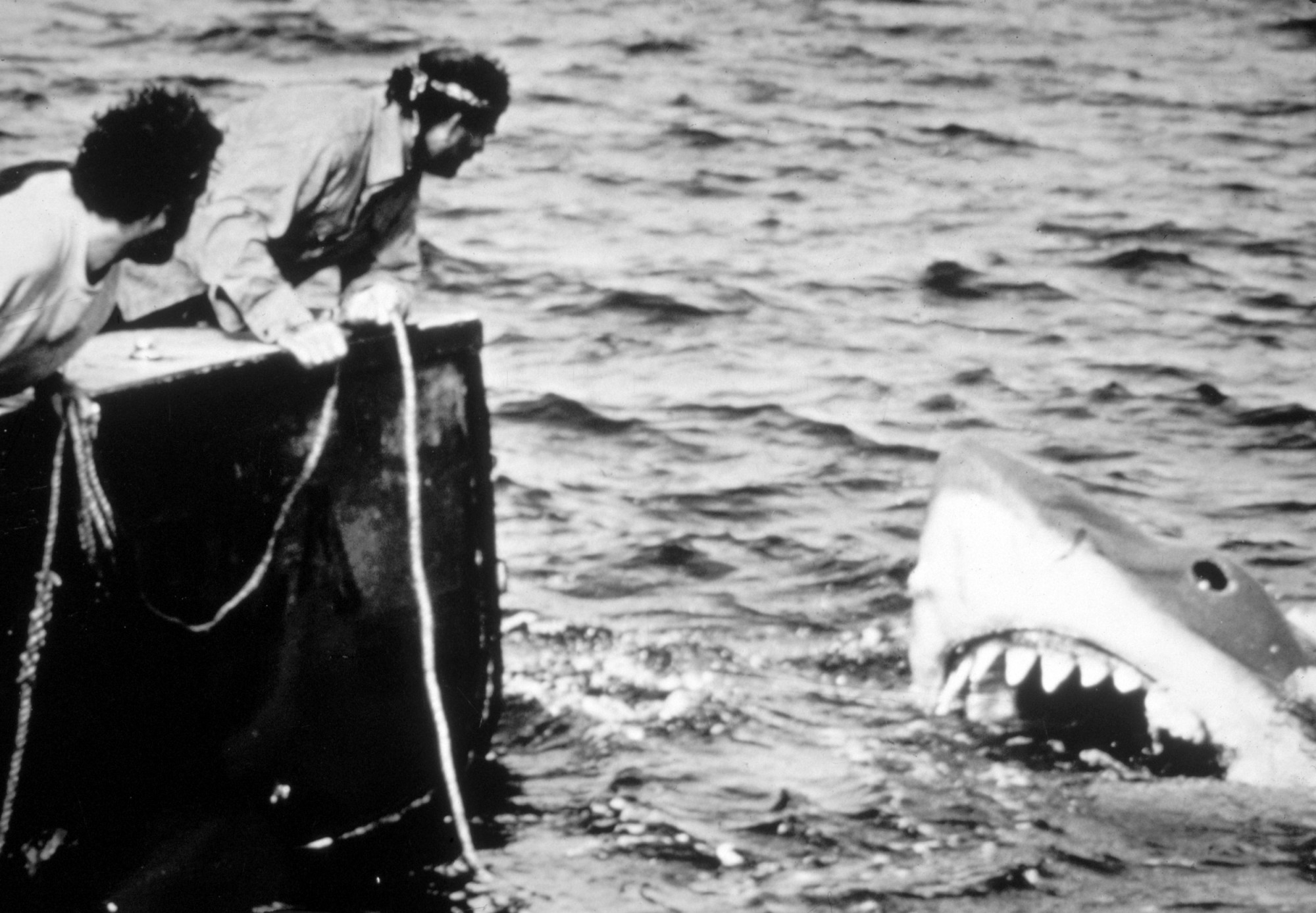
Jaws (1975)
Steven Spielberg’s Jaws is a thriller that revolutionized the summer blockbuster. Set in the fictional town of Amity Island, the story follows Police Chief Martin Brody (Roy Scheider), oceanographer Matt Hooper (Richard Dreyfuss), and shark hunter Quint (Robert Shaw) as they track a killer great white shark terrorizing beachgoers. The film’s suspenseful pacing, aided by John Williams’ ominous, Academy Award-winning score, gripped audiences. Jaws combined groundbreaking mechanical effects with masterful tension, setting box office records and establishing Spielberg as a leading director. It remains a touchstone for horror and adventure films, influencing decades of filmmaking. Getty Images / Nostalgic America, Inc.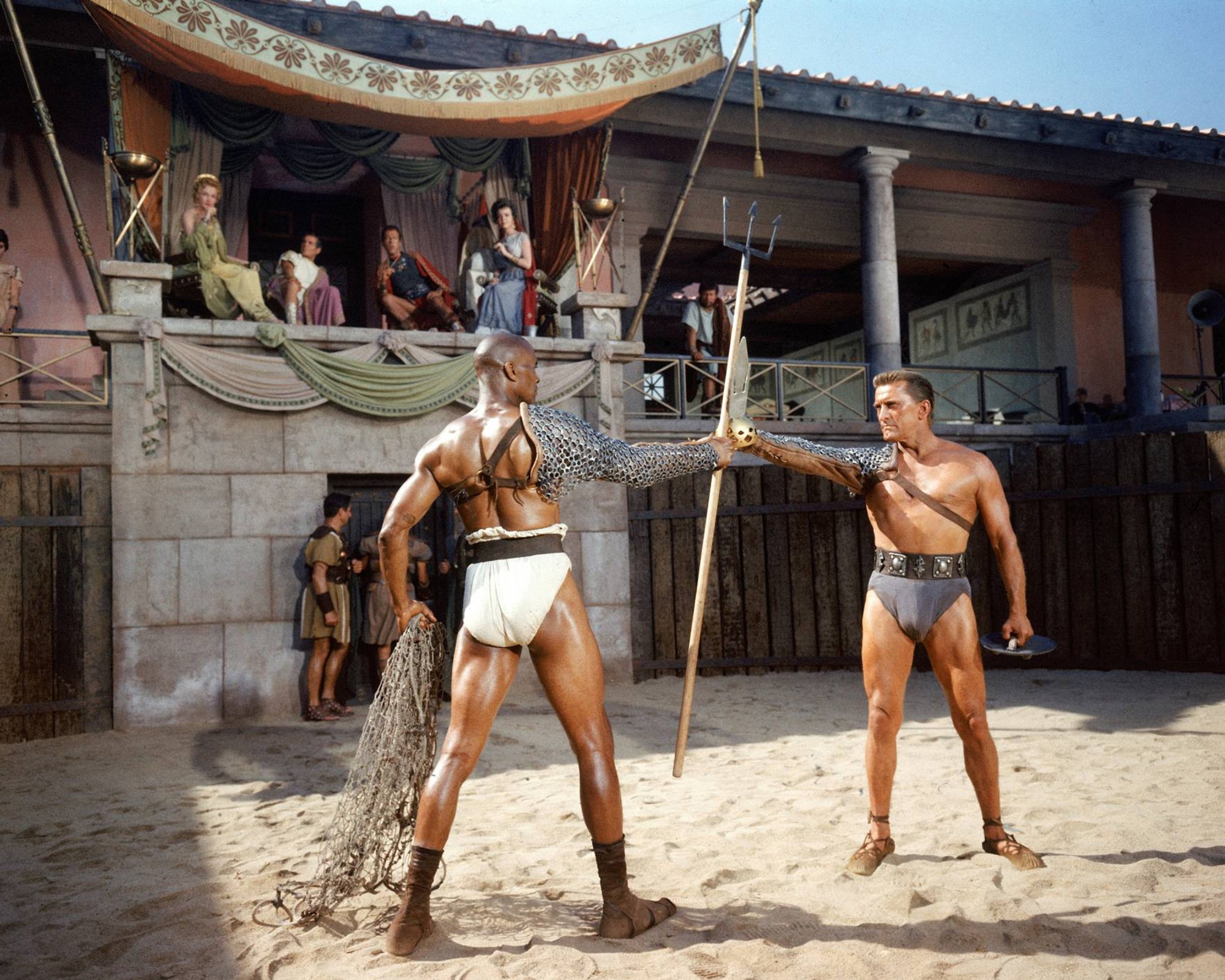
Spartacus (1960)
Directed by Stanley Kubrick, Spartacus is an epic historical drama based on the true story of a gladiator who led a massive slave rebellion against the Roman Empire. Kirk Douglas stars as Spartacus, embodying a hero driven by a longing for freedom and justice. The film’s cast includes Laurence Olivier, Jean Simmons, and Peter Ustinov, with Ustinov winning an Oscar for Best Supporting Actor. Known for its grand scale, powerful performances, and themes of resilience and sacrifice, Spartacus played a role in breaking the Hollywood blacklist by openly crediting blacklisted writer Dalton Trumbo for the screenplay. Getty Images / Nostalgic America, Inc.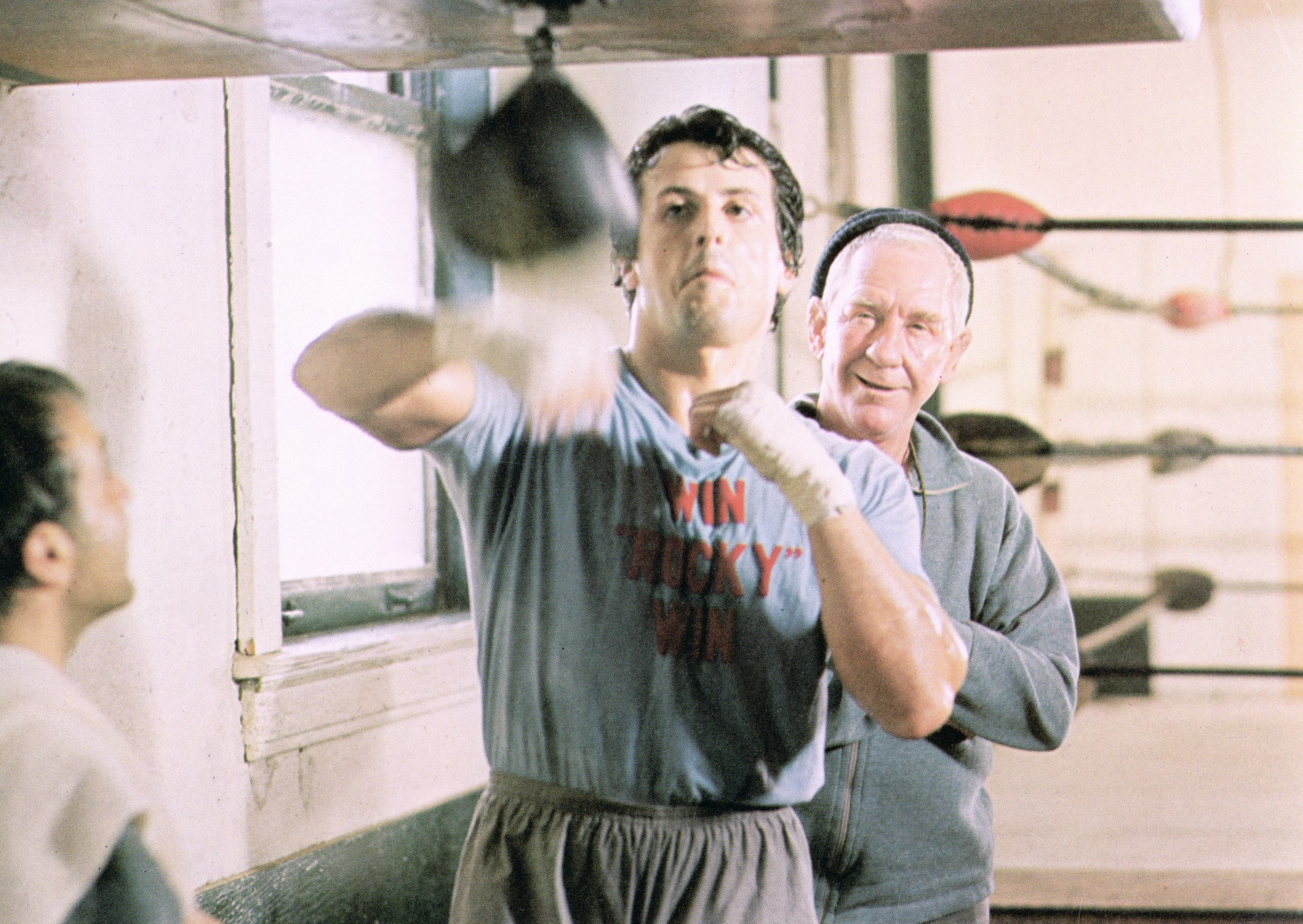
Rocky (1976)
Rocky, written by and starring Sylvester Stallone, is an underdog story about Rocky Balboa, a small-time boxer in Philadelphia who gets a once-in-a-lifetime chance to fight the heavyweight champion, Apollo Creed (Carl Weathers). Directed by John G. Avildsen, the film is celebrated for its heartfelt storytelling and raw portrayal of perseverance and determination. The training montage set to “Gonna Fly Now” and the climactic fight scene became cultural touchstones. Rocky won three Oscars, including Best Picture, launching a successful franchise and making Stallone an international star. It embodies the spirit of resilience and triumph over adversity. Getty Images / Nostalgic America, Inc.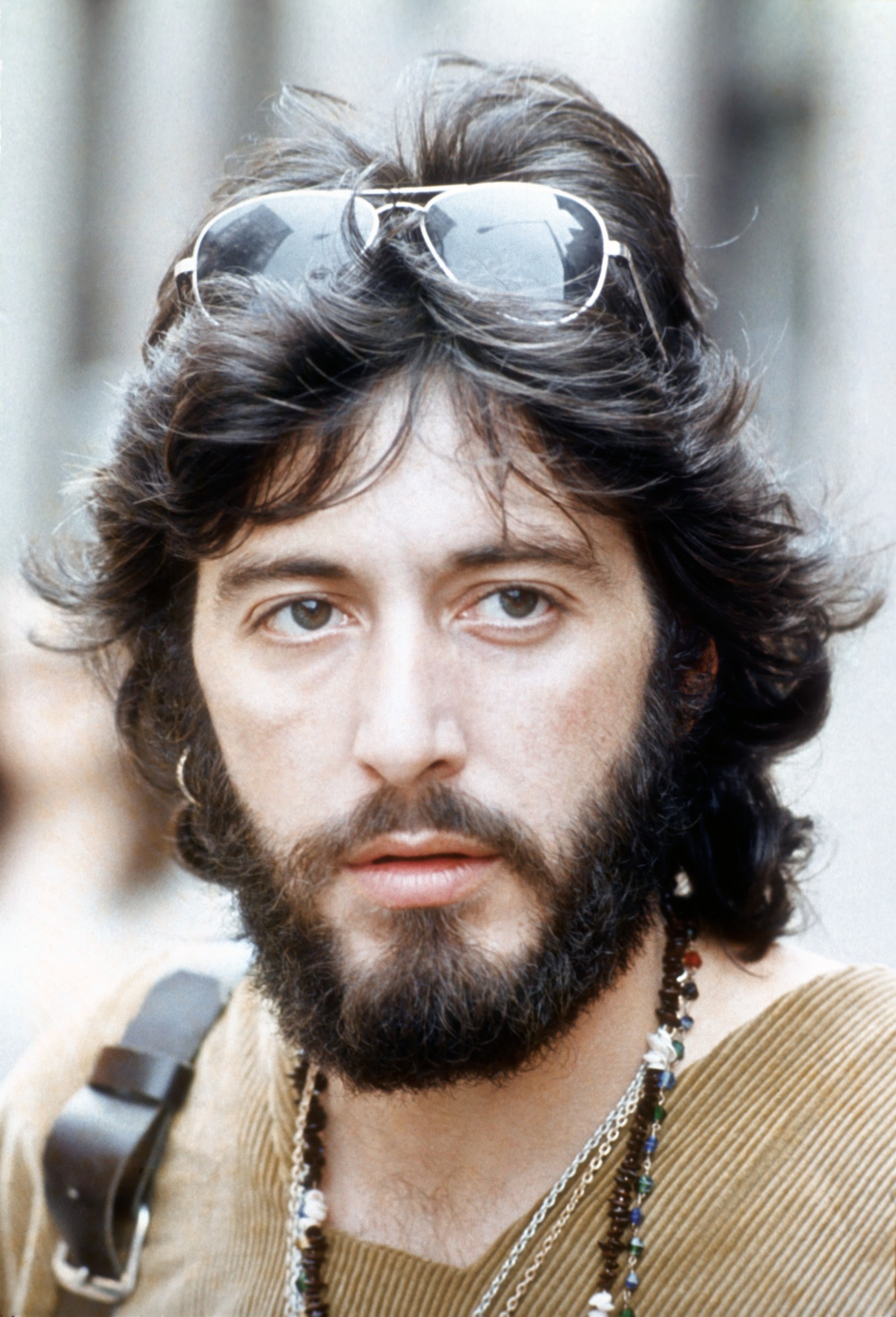
Serpico (1973)
Serpico, directed by Sidney Lumet and starring Al Pacino, is a gritty crime drama based on the true story of Frank Serpico, an NYPD officer who exposed widespread corruption within the force. Pacino’s portrayal of Serpico, a principled cop fighting against a system of bribery and injustice, earned him an Oscar nomination. The film’s realistic depiction of police work and its themes of integrity and sacrifice resonated with audiences, cementing Pacino’s reputation as one of the era’s finest actors. Serpico was praised for its compelling narrative, Lumet’s authentic direction, and its unflinching look at systemic corruption. Getty Images / Nostalgic America, Inc.